Organic wine has become increasingly popular among wine enthusiasts. These wines are made from grapes grown without synthetic pesticides or fertilizers. They offer a unique taste experience and are often better for the environment.
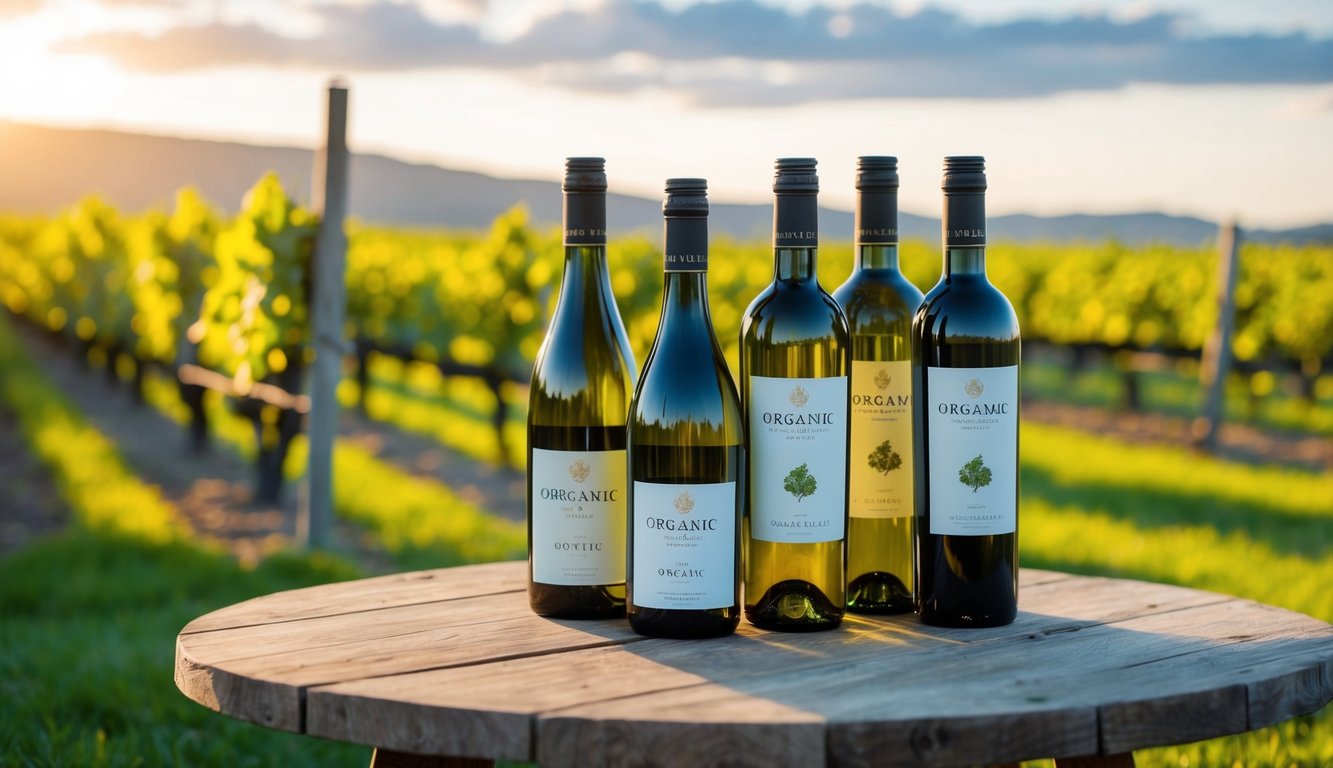
You’ll find organic wines that suit your palate and values. Many brands now produce high-quality organic options. From crisp whites to bold reds, there’s an organic wine for every preference. Let’s explore some top organic wine brands you’re sure to enjoy.
1) Frey Vineyards Organic Cabernet Sauvignon
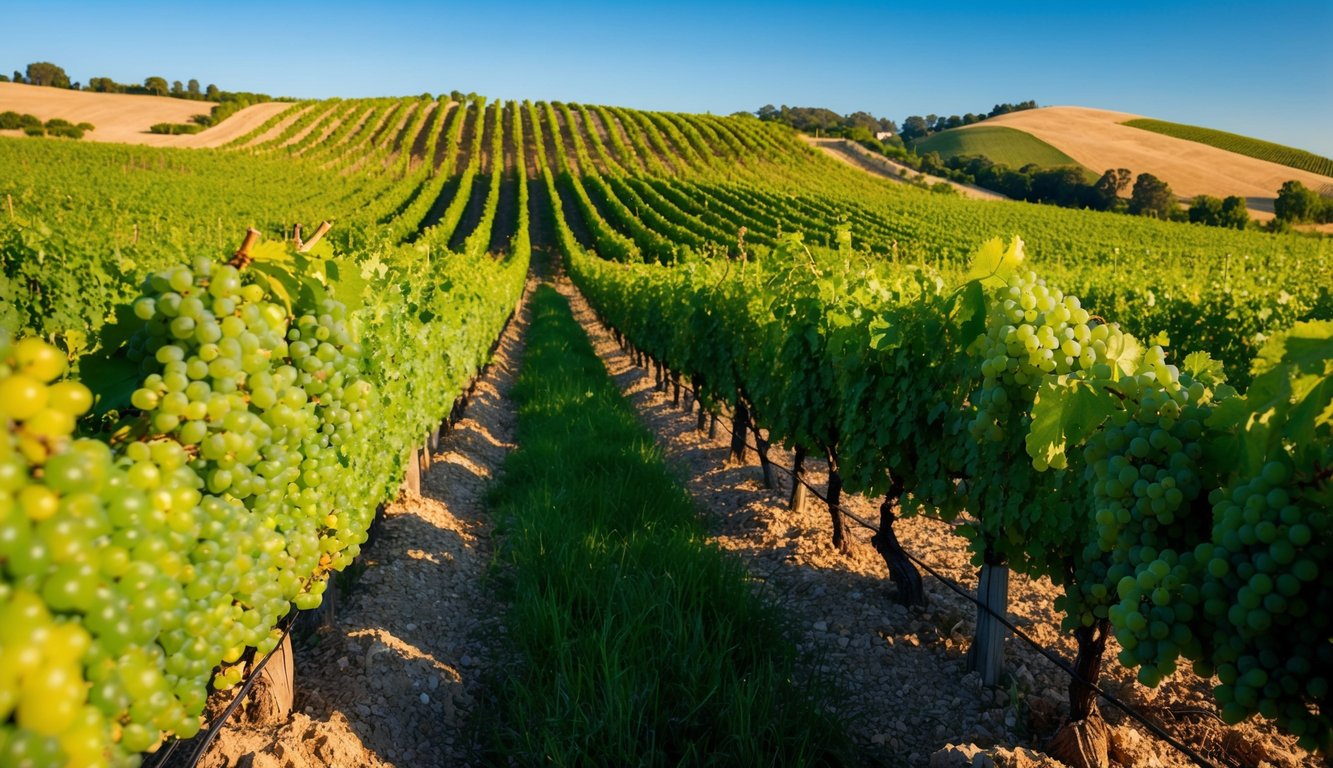
If you’re looking for a tasty organic wine, Frey Vineyards has you covered. Their Organic Cabernet Sauvignon is a standout choice for wine lovers.
Frey Vineyards is known for their commitment to organic farming. They use no added sulfites in their winemaking process, which is rare for a Cabernet Sauvignon.
The 2021 Frey Organic Cabernet Sauvignon offers a rich, full-bodied experience. You’ll notice flavors of ripe berries and a hint of oak.
This wine pairs well with hearty meals. Try it with grilled meats or robust vegetarian dishes for a perfect match.
Frey Vineyards focuses on the health of their farm as a living organism. They practice Biodynamic viticulture, which goes beyond organic farming.
You’ll be pleased to know that Frey wines are gluten-free and allergy-friendly. This makes them a great choice for those with dietary restrictions.
At around $18 per bottle, this Cabernet Sauvignon offers good value for an organic wine. You can enjoy high-quality, eco-friendly wine without breaking the bank.
2) Bonterra Organic Chardonnay
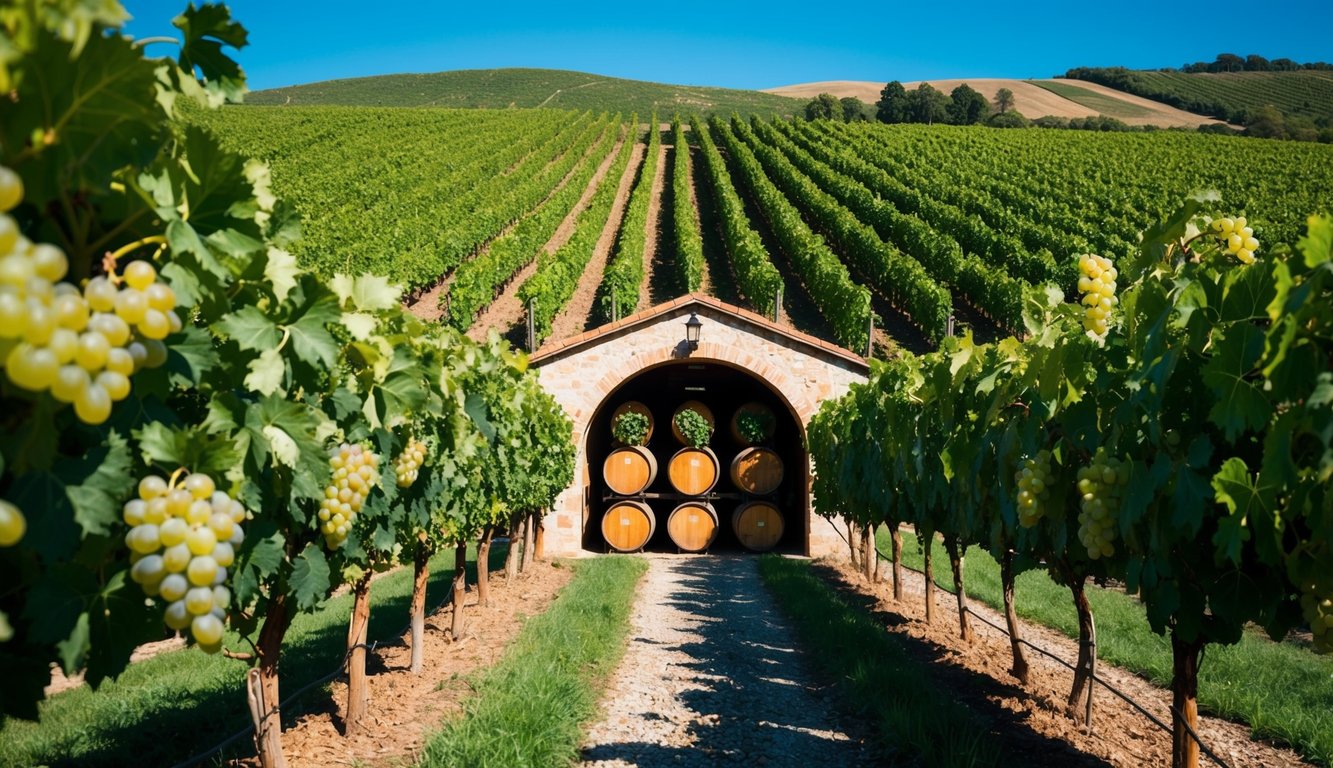
Bonterra Organic Chardonnay is a standout choice for wine lovers seeking a high-quality organic option. This California-based winery crafts its Chardonnay using organically farmed grapes, ensuring a pure and vibrant taste.
When you sip Bonterra’s Chardonnay, you’ll notice a rich, buttery cream flavor that quickly gives way to hints of honey and lightly toasted almonds. The wine also offers tropical notes of pineapple and citrusy lemon, creating a complex and enjoyable flavor profile.
You’ll appreciate that Bonterra’s commitment to organic farming extends beyond just the grapes. Their entire winemaking process focuses on sustainability and environmental care.
If you’re concerned about sulfites, you should know that Bonterra wines typically contain between 70 to 90 ppm of total sulfites. This level helps maintain the wine’s consistency and aging potential.
You can pair this versatile Chardonnay with a variety of dishes. It goes particularly well with grilled mahi-mahi, making it a great choice for seafood lovers.
By choosing Bonterra Organic Chardonnay, you’re not only treating yourself to a delicious wine but also supporting environmentally conscious winemaking practices.
3) Pizzolato Fields Prosecco
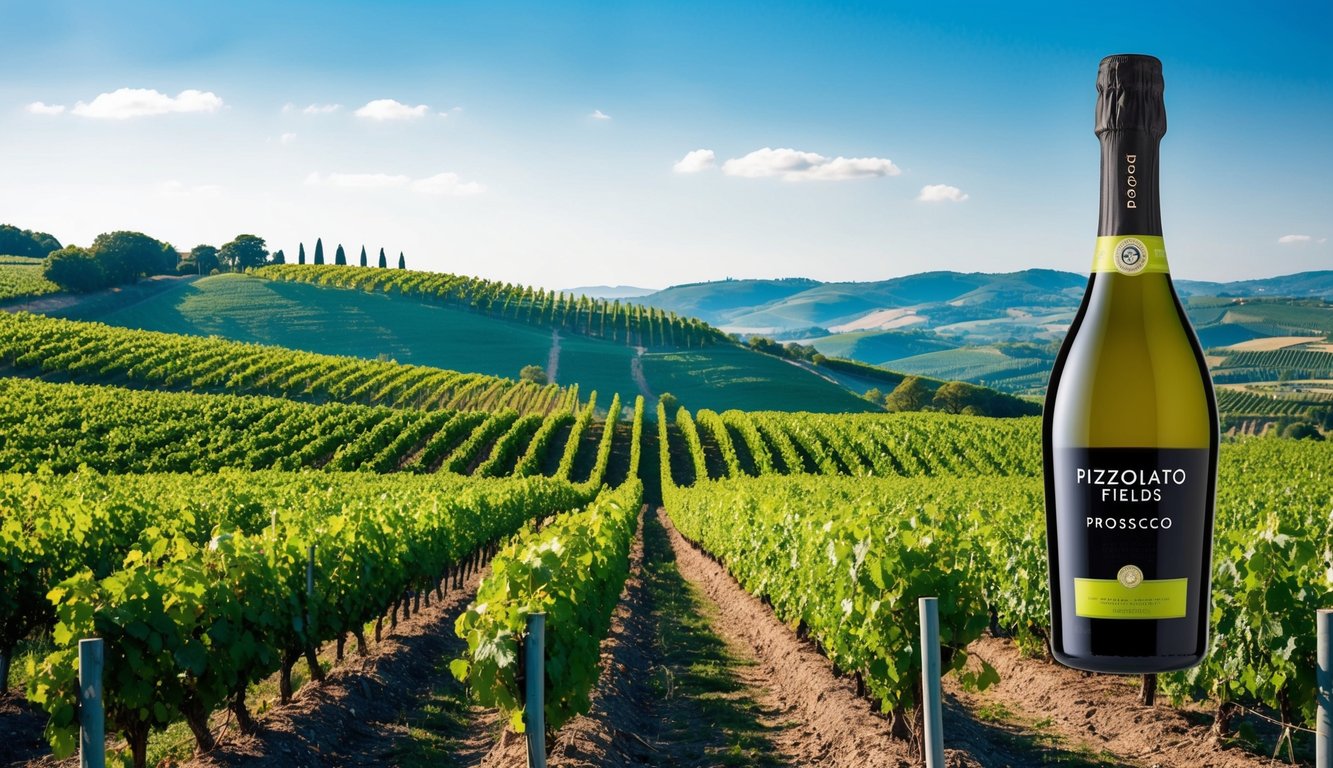
You’ll love Pizzolato Fields Prosecco if you’re looking for a high-quality organic sparkling wine. This Italian bubbly is made entirely from organically grown grapes.
The wine offers enticing aromas of white spring flowers, beeswax, and pear. Its vibrant and ethereal palate will delight your senses with every sip.
Pizzolato Fields Prosecco has received impressive ratings from wine critics. The Brut version has earned 90 points, making it an exceptional choice for its price point.
You can find this Prosecco at Whole Foods and other fine retailers nationwide. With a suggested retail price of $14.99, it’s perfect for any occasion.
The wine features 5.1 bars of atmosphere pressure, resulting in vibrant and long-lasting bubbles. This adds to the overall enjoyment of your drinking experience.
Pizzolato also offers a Frizzante style of their Fields Prosecco. This version has a gentler effervescence and has also received high praise from wine enthusiasts.
4) Badger Mountain Pure Red Blend
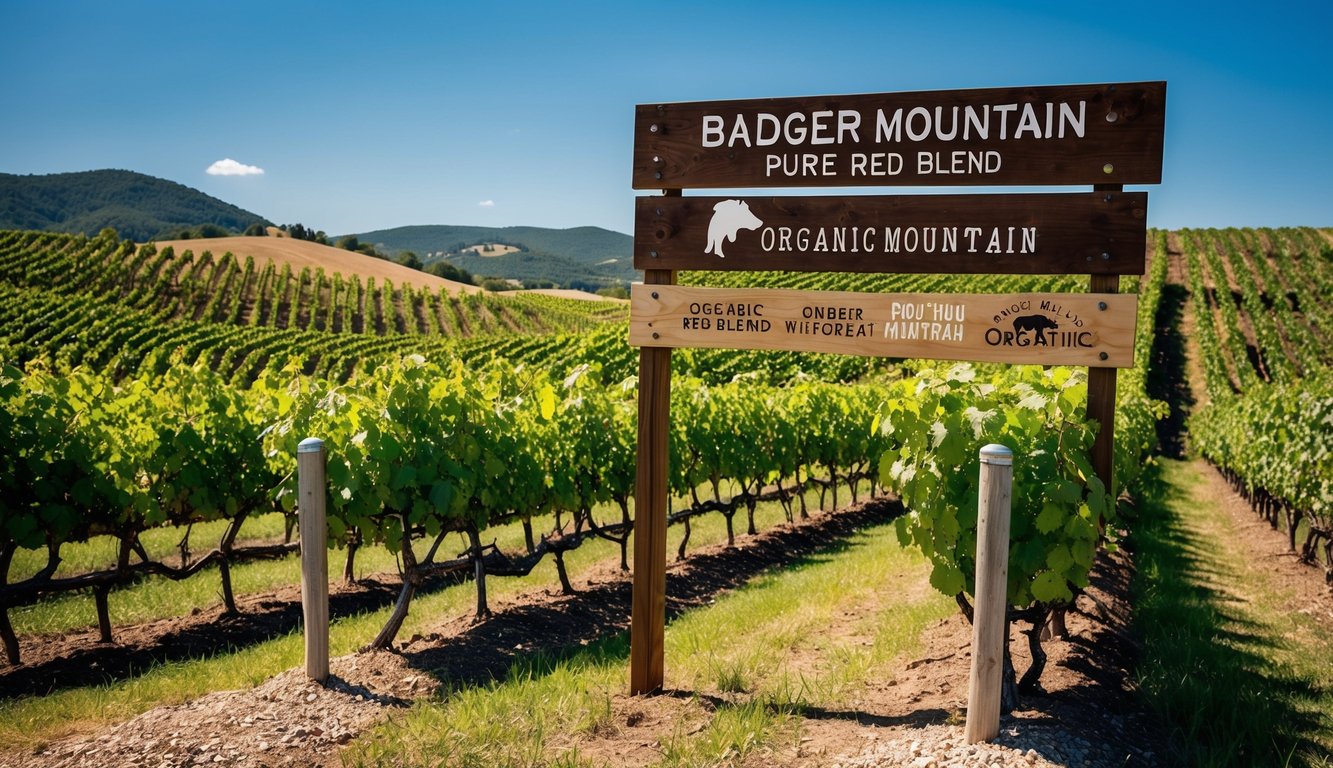
You’ll love this organic red blend from Badger Mountain. It’s made with no added sulfites, perfect for those seeking a pure wine experience.
The blend features a mix of Cabernet Sauvignon, Merlot, Syrah, and Pinot Noir. This combination creates a rich, complex flavor profile you’ll enjoy.
On the nose, you’ll detect aromas of mountain blackberry and currant. A hint of dark chocolate adds depth to the scent.
When you take a sip, your palate will be greeted by intense flavors. Blueberries, blackberries, and a touch of pomegranate dance across your tongue.
Badger Mountain Vineyard, located in Kennewick, Washington, has been producing organic wines since 1990. They were the first certified organic winery in Washington State.
You can feel good about choosing this wine. Badger Mountain is committed to sustainable practices and organic winemaking.
This Pure Red Blend is versatile. It pairs well with a variety of foods or can be enjoyed on its own. You’ll find it’s a great addition to your wine collection.
5) Grgich Hills Estate Zinfandel
Grgich Hills Estate offers a delightful organic Zinfandel that you’ll want to try. This Napa Valley wine showcases the winery’s commitment to natural farming and quality.
The 2019 vintage brings you a rich flavor profile. You’ll taste juicy red berries and ripe plums with hints of spice. Its balanced acidity makes it perfect for pairing with food.
Grgich Hills uses certified organic vineyards and follows regenerative agriculture principles. This means you’re getting a wine that’s good for both you and the environment.
You’ll appreciate the wine’s elegant balance and lasting finish. It’s ideal for both casual sipping and special occasions.
The winery releases its Zinfandel after careful aging. For example, the 2019 vintage was bottled in April 2021 and released in February 2022. This patience allows the wine’s flavors to develop fully.
When you choose Grgich Hills Estate Zinfandel, you’re selecting a wine with a rich heritage. The winery’s dedication to quality shines through in every bottle.
Understanding Organic Wines
Organic wines are made from grapes grown without synthetic pesticides or fertilizers. They follow strict guidelines to ensure quality and environmental sustainability.
Definition and Certification
Organic wines come from vineyards that use natural farming methods. These vineyards avoid synthetic chemicals and GMOs. Instead, they rely on natural pest control and fertilizers.
To be labeled organic, wines must meet specific standards. In the U.S., the USDA oversees organic certification. Wineries must prove they follow organic practices for at least three years.
Certification requirements include:
- No synthetic pesticides or fertilizers
- No GMO grapes
- Limited use of sulfites
Health and Environmental Benefits
Organic wines offer several advantages for your health and the planet. They contain fewer chemicals and may have higher levels of antioxidants.
Health benefits:
- Lower sulfite content
- Fewer synthetic residues
- Potentially higher antioxidant levels
Environmentally, organic vineyards promote biodiversity. They use natural methods to control pests and enrich soil. This approach helps protect local ecosystems and wildlife.
Organic winemaking also reduces water pollution. Without synthetic chemicals, there’s less runoff into nearby water sources. This practice helps maintain cleaner water for surrounding communities.
Selecting the Right Organic Wine

Choosing an organic wine involves more than just looking for a label. You’ll want to consider taste profiles, food pairings, and the winery’s commitment to sustainability. These factors help ensure you pick a wine you’ll truly enjoy.
Tasting Notes and Pairings
Organic wines offer a range of flavors to suit different tastes. Sauvignon Blanc can be crisp and refreshing, perfect for seafood dishes. For a richer white, try an organic Chardonnay. It pairs well with creamy pasta or roasted chicken.
Red wine lovers might enjoy an organic Pinot Noir. Its light body and fruity notes complement grilled salmon or mushroom risotto. For heartier meals, consider a bold organic Cabernet Sauvignon.
When tasting, pay attention to:
- Aroma
- Flavor intensity
- Finish
Remember, organic wines can taste different from conventional ones. They often have more vibrant fruit flavors and a stronger sense of terroir.
Sustainability Practices
Look for wineries that go beyond organic certification. Many use sustainable farming methods to protect the environment.
These practices can include water conservation, renewable energy use, and biodiversity promotion.
Some wineries, like Frey Vineyards, leave large portions of their land untouched. This preserves native plants and wildlife. Others focus on reducing their carbon footprint through innovative packaging or transportation methods.
Check winery websites or ask your local wine shop about specific sustainability efforts. You might find wines that align with your environmental values. This way, you can enjoy your glass knowing it supports eco-friendly practices.

